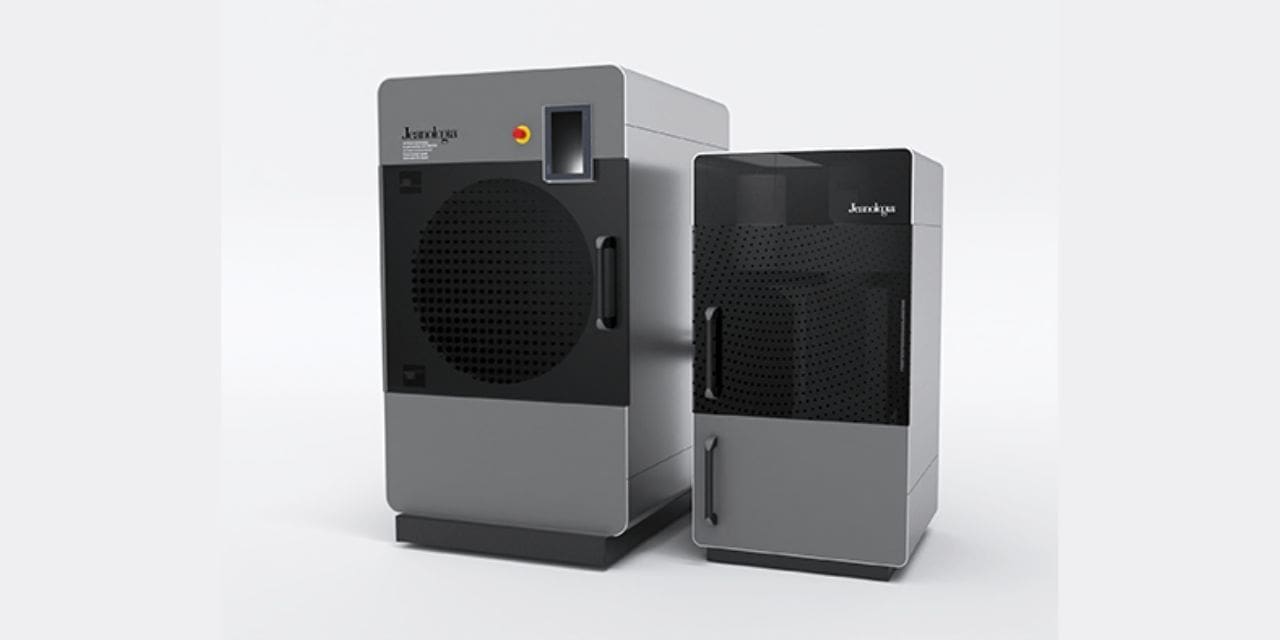Air Fiber Washer extracts up to 60% of microfibers during garment manufacturing by using dynamic airflow in combination with microfiltration to capture microfibers.
Each industrial Air Fiber Washer machine will allow for the collection of up to 325 kg of microfibers per year for potential repurposing.
This technology will be shared throughout the industry without any as part of both companies & commitment to mitigate the release of microfibers.
Milan (08-06-2023). Inditex and Jeanologia have jointly developed Air Fiber Washer, the first industrial air system designed to extract microfibers during garment fabrication and thus reduce subsequent shedding in domestic
laundering.
Microfibers are small particles with a length of less than 15 millimeters that are shed from textiles, especially during initial domestic washes. This is one of the great challenges for the textile industry due to existing limitations in current industrial capacities for water treatment.

Air Fiber Washer – which will be presented 8-14 June at the ITMA international textile technology fair in Milan – was created with the aim of reducing the release of microfibers in initial washes thanks to a new industrial pretreatment that effectively removes these particles.
With innovative technology, this new development makes it possible to reduce microfiber shedding by up to 60% through the use of air, without employing water or thermal energy and without compromising aspects such as
fabric quality. Its dynamic air flow extracts the microfibers from the garments and collects them in a containment bag for potential recycling, moving us closer towards a circular industry with zero waste. Each Air Fiber Washer will collect up to 325 kg of microfibers per year, depending on the type of fabric, and machine conditions such as loading and movement.
A technology placed at the entire textile industry’s disposal
This technology will be shared with the industry with no strings attached, as part of the effort of both companies to mitigate microfiber shedding.
Enrique Silla, President of Jeanologia, emphasized that the goal of Jeanologia, a leading company in the development of eco-efficient technologies, is to offer cost-neutral technological solutions to manufacturers, brands and retailers so that they can act immediately.
“Working with Inditex is a great experience and a source of pride. This initiative is just the first step in the mission we have set for ourselves to minimize the impact of microfiber shedding in textile manufacturing and in the
product life cycle,” Silla said.
Javier Losada, General Director of Sustainability at Inditex, emphasized that "we must promote innovative solutions that allow us to respond to the challenges of our industry, such as microfiber shedding. This project with
Jeanologia is an example of how we can collaborate with other industries to limit our impact on resources such as water right from the manufacturing stage.”
INDITEX
Inditex is a global fashion retail group, comprising seven brands (Zara, Pull&Bear, Massimo Dutti, Bershka, Stradivarius, Oysho and Zara Home) with a presence in over 200 markets. Its business model is focused on satisfying customer demand in a sustainable way. Inditex is committed to achieving climate neutrality by 2040.
Jeanologia: working for the world for over 25 years Since 1994 their mission has been to create an ethical, sustainable and eco-efficient industry, marking a new era through sustainability, digitalization and automation.
Its MissionZero program transforms the way jeans are made to eliminate 100% of the discharge generated in the manufacture and finishing of Blue Jeans, from the fabric to the final garment.
The company is leading the transformation of the industry with its disruptive technologies: laser, G2 ozone, e-Flow, SmartBoxes, Colorbox and H2 Zero, capable of increasing productivity, reducing costs, water and energy consumption, and eliminating harmful emissions and discharges, guaranteeing zero pollution.

